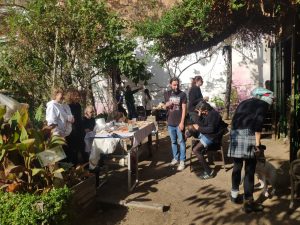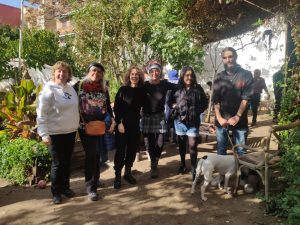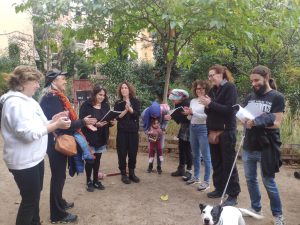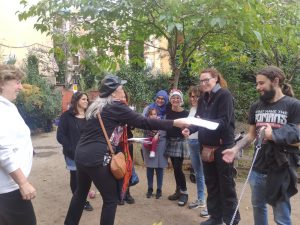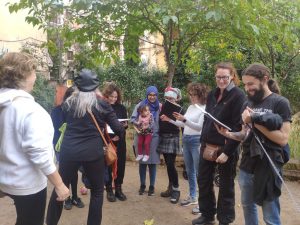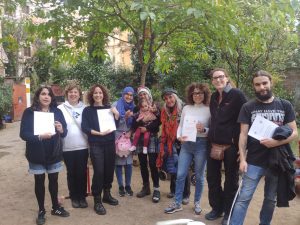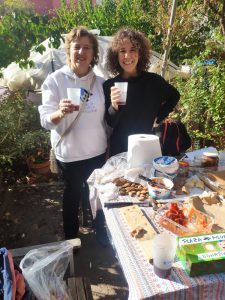Master in Disaster Management
Since 2015 a Master’s degree programme in disaster management is offered by Complutense University of Madrid and Polytechnic University of Madrid. This Master’s degree in Disaster Management was originally coordinated by the group’s researcher Begoña Vitoriano, and is currently coordinated by Gonzalo Barderas (Complutense University) and Francisco Javier Elorza (Polytechnic University).
- Prevention and mitigation (including risk-analysis)
- Preparedness
- Response
- Recovery
Service-Learning (ApS)
Service-Learning (ApS) is an educational methodology that combines learning and community service in one well-structured project, so that the participants get to work on real life societal needs, whilst studying, and the opportunity to improve things in the community.
Related to the Master in Disaster Management, a Service-Learning project has been developed leading to a Master Thesis entitled ‘Información en Redes de Solidaridad Comunitaria en Pandemia: el Banco de Alimentos del Barrio de Lavapiés‘, developed by Víctor Rodríguez Matías. The document can be downloaded here.
Project details: Redes de solidaridad comunitaria en pandemia: el Banco de Alimentos del Barrio de Lavapiés. Proyecto de Aprendizaje y Servicio UCM 2022-23. IPs: Begoña Vitoriano, María Teresa Ortuño.
Abstract of the Master thesis:
The purpose of this work is to collect, analyze and visualize the work done by solidarity networks in response to the SARS-COVID-19 pandemic. From the moment where a mandatory lockdown was announced in Spain at the beginning of March 2020, a multitude of actors have carried actions aimed at mitigating its effects. This study aims to highlight the often-invisible work of these collectives in the areas and population sectors made the most vulnerable by the pandemic, i.e., people that, in most cases, are also invisible to the rest of society. It will try to explain how these helping mechanisms worked, and the material volume of this help will be quantified using the Lavapiés neighborhood, in Madrid, as a case in study, thanks to the data collected by Banco de Alimentos del Barrio, which has been one of the main driving forces of this document. Additionally, and leaning on similar studies, there will be an analysis of how certain social characteristics (race, class, ideology…) intervene in the day-to-day operations of these type of initiatives.
Here, you can find some pictures of the event of 12 november 2022, in Esto es una Plaza, Lavapiés, finishing the project and providing a copy of the developed work by Victor to the association BAB-Lavapiés. Thanks to BAB for giving us the opportunity to collaborate, and specially to Teba and Victor!

